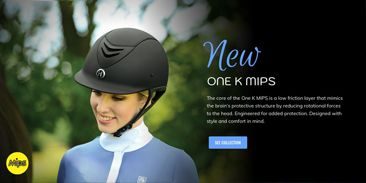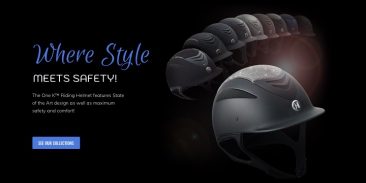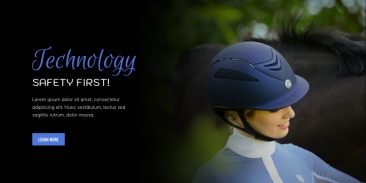The MIPS Brain Protection System (BPS) is designed to add protection against rotational motion transferred to the brain. Rotational motion affects the brain and increase the risk for minor and severe brain injuries. When implemented in a helmet, the MIPS BPS can reduce rotational motion by redirecting energies and forces otherwise transferred to the brain.
The core of the MIPS BPS is a low friction layer that allows the head to move 10-15 mm relative the helmet in all directions, reducing rotational motion to the brain. The MIPS BPS makes your helmet safer and adds protection.
Strain in the brain
Rotational motion from an angled impact can cause strain in the brain that can lead to tearing in the brain tissue. The illustration is based on data gathered using sensors inside the crash test dummy heads. The dummy head, wearing a helmet, was subjected to an angled impact in a test rig at the MIPS lab in Sweden.
The illustration shows the strain in the brain from an angled impact when the dummy head is wearing the same type of helmet – with and without the MIPS BPS.
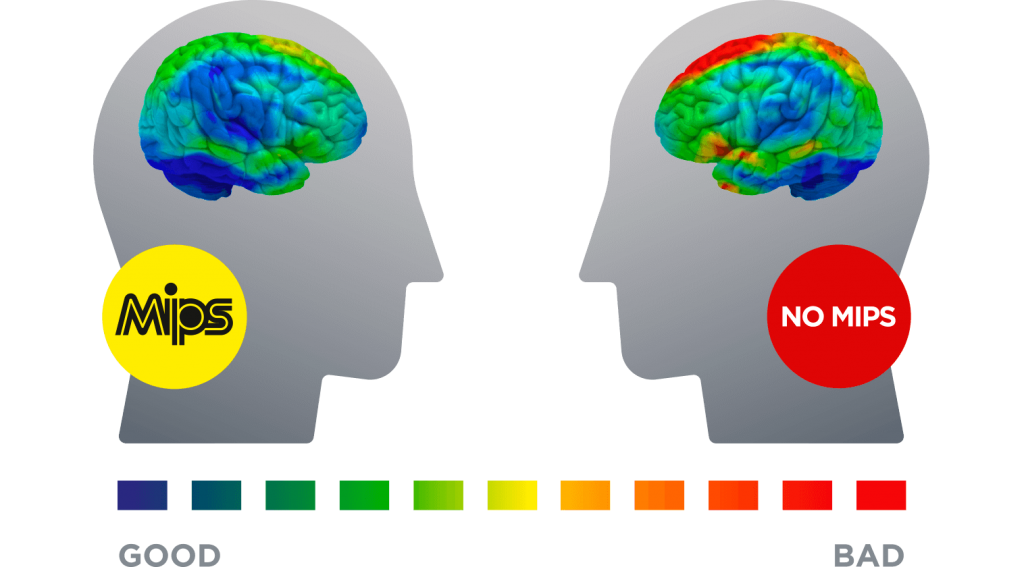
Reality-based testing
Statistics show that many brain injuries occur due to angled impacts to the head. However, in standard helmet tests the helmet is dropped vertically onto a flat surface, and this does not create an angled impact. These results are helpful for measuring precise vertical impacts, but inferior for measuring a more realistic scenario of an angled impact.
The MIPS test rig is developed for testing angled impacts to simulate a fall during a crash.
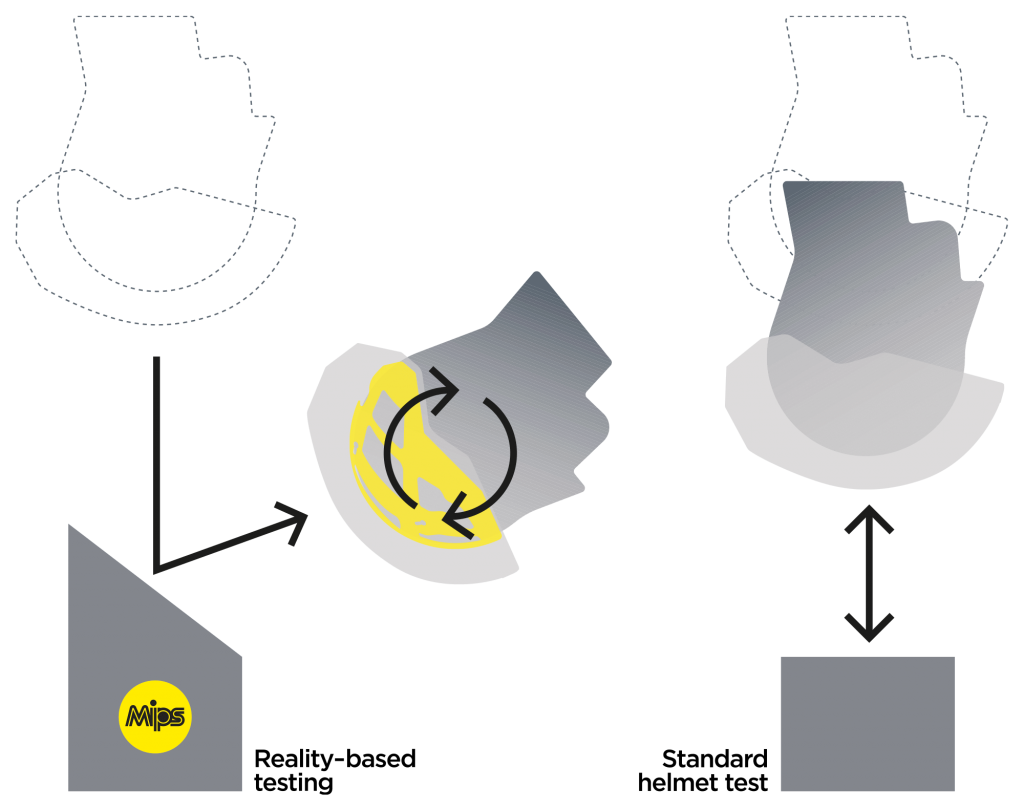
Scientifically proven
Depending on what type of helmet is tested, the helmet is dropped from 2,2–3,1 meters onto a 45-degree impact angle covered with grinding paper. Three different types of impact points are tested, and all helmets are tested in all sizes.
Data is gathered using nine accelerometers inside a Hybrid III crash test dummy head and analyzed using a computer model known as the Finite Element Model. The same helmet model is compared with and without the MIPS BPS to make sure that the helmet passes the strain reduction criteria MIPS have on all approved helmets.
More than 27,000 tests have been conducted at the global test center in Stockholm, Sweden. In addition to that, a number of third-party tests have also been made supporting MIPS safety claims.

